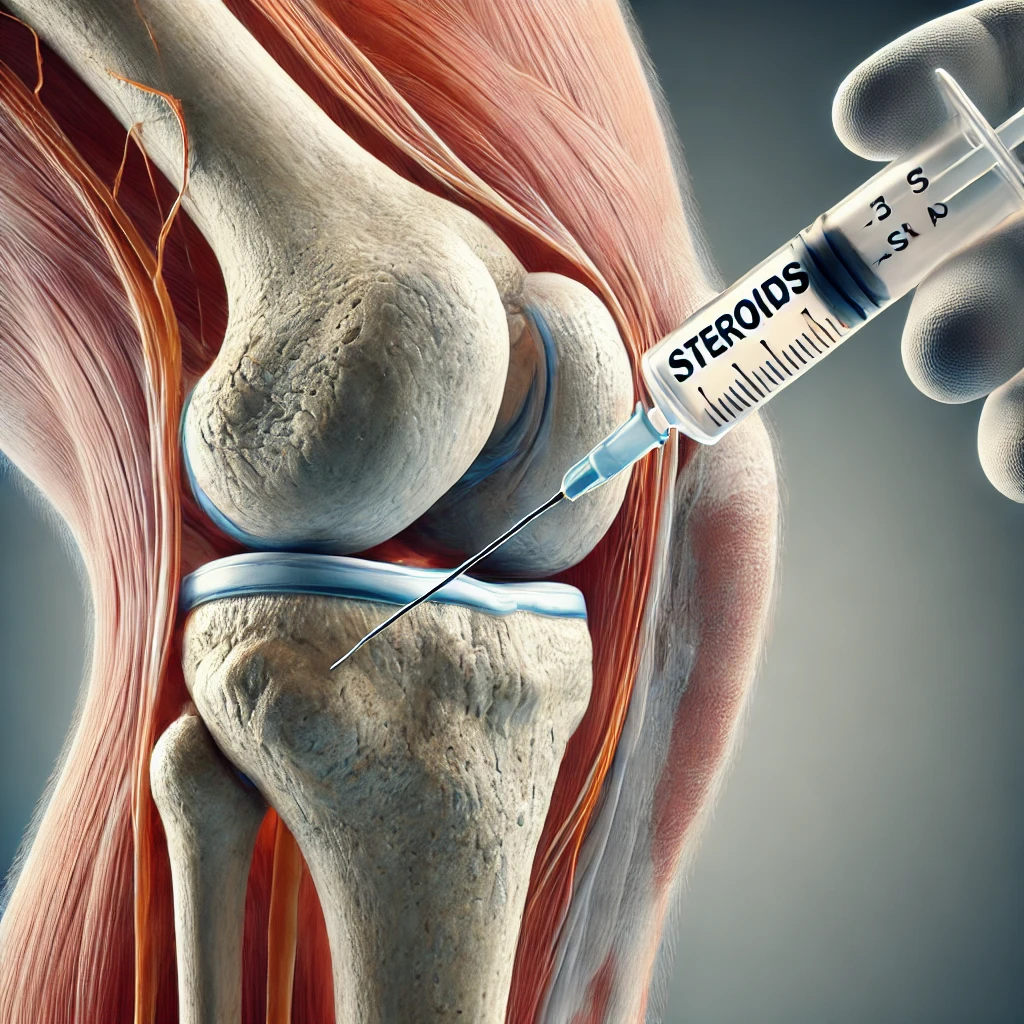Do Steroid Injections to the Knee Harm the Knee? What You Should Know Before Your Next Shot

Do Steroid Injections to the Knee Harm the Knee?
Understanding the Risks and Safer Options for Chronic Knee Pain
If you're dealing with chronic knee pain from arthritis, overuse, or injury, chances are you've been offered a steroid injection—commonly referred to as a cortisone shot. These injections are often used to reduce inflammation and provide short-term pain relief.
But many patients are now asking:
Do steroid injections to the knee harm the knee in the long run?
The short answer is: they can—especially if used repeatedly.
While steroid injections may provide temporary relief, growing evidence shows they may accelerate joint degeneration, damage cartilage, and worsen outcomes over time. In this blog, we’ll explore how cortisone works, the potential harm to your knee joint, and safer, more regenerative alternatives you may want to consider.
What Are Steroid (Cortisone) Injections?
Steroid injections contain synthetic corticosteroids, which mimic your body’s natural anti-inflammatory hormones (like cortisol). When injected directly into a painful joint, they:
- Reduce inflammation
- Decrease swelling
- Suppress immune activity
- Provide temporary pain relief (usually 1–3 months)
They’re commonly used for conditions like:
- Osteoarthritis
- Bursitis
- Meniscal tears
- Tendinitis or overuse syndromes
While often effective in the short term, they don’t fix the root cause—and may come with significant risks.
Do Steroid Injections Actually Harm the Knee?
✅ Short-Term Benefit, Long-Term Risk
While a single cortisone injection may offer temporary relief, repeated injections over time have been shown to harm joint tissue.
Here’s how:
❌ 1. Cartilage Breakdown
Research published in the journal Radiology and other orthopedic journals has shown that corticosteroids can accelerate the loss of articular cartilage, the smooth tissue that cushions your knee joint.
Cartilage does not regenerate easily, and once it deteriorates, pain, stiffness, and arthritis symptoms can worsen.
In one study, patients who received repeated steroid injections for knee osteoarthritis experienced greater cartilage loss over two years compared to those who didn’t.
❌ 2. Increased Risk of Joint Space Narrowing
Cortisone can lead to thinning of the joint space, especially in knees already affected by osteoarthritis. This structural damage often results in:
- Increased pain
- Reduced mobility
- Faster progression toward joint replacement
❌ 3. Weakened Tendons and Ligaments
Corticosteroids suppress the local repair response and can weaken tendons, ligaments, and joint capsules over time. This may increase the risk of:
- Tendon rupture (especially the patellar or quadriceps tendon)
- Joint instability
- Delayed healing after injury
❌ 4. Damage to Subchondral Bone
There’s also concern about steroid injections leading to bone thinning and necrosis (bone tissue death) in some cases, particularly with repeated or high-dose use.
❌ 5. Blunted Natural Healing
Because cortisone suppresses the immune system, it may interfere with the body’s natural healing processes, which rely on inflammation to repair tissue. This can delay or prevent proper healing after injury.
How Many Steroid Injections Are Too Many?
Most experts agree that no more than 3 injections per year per joint is the general limit to avoid structural damage. However, even 1–2 injections per year over multiple years may lead to cumulative harm.
If you’ve had multiple cortisone shots without lasting relief, your knee pain is likely driven by underlying joint degeneration—and you may benefit more from regenerative strategies that address the root cause.
Short-Term Relief vs. Long-Term Health: Weighing the Risks
Steroid injections may be appropriate in select cases, such as:
- Severe flare-ups of arthritis
- Situations where surgery must be delayed
- People not ready or eligible for regenerative therapies
However, relying on cortisone as a long-term pain management tool may come at the cost of your joint integrity.
What Are the Alternatives to Cortisone Injections for Knee Pain?
The good news? There are safer, more restorative options for managing knee pain—especially in functional and regenerative medicine. These include:
✅ 1. Platelet-Rich Plasma (PRP)
PRP uses your own concentrated platelets (growth factors) to:
- Reduce inflammation
- Stimulate cartilage repair
- Improve joint lubrication
- Support tendon and ligament healing
Multiple studies have shown PRP is as effective as or more effective than cortisone—with longer-lasting results and no risk of tissue breakdown.
✅ 2. Prolotherapy
This natural regenerative injection uses dextrose (sugar solution) to stimulate local healing, tighten ligaments, and improve joint stability—without suppressing inflammation like steroids.
It’s ideal for those with mild to moderate arthritis or ligament laxity contributing to pain.
✅ 3. Peptide Therapy (e.g., BPC-157, TB-500)
Peptides can enhance tissue repair, reduce inflammation, and support recovery from joint degeneration or soft tissue injury—especially when paired with physical therapy or PRP.
✅ 4. Red Light Therapy with PEMF
Photobiomodulation combined with pulsed electromagnetic field therapy (PEMF) supports mitochondrial function, reduces pain, and promotes non-invasive joint healing.
✅ 5. Targeted Physical Therapy and Weight Management
Custom physical therapy programs that focus on:
- Quadriceps strengthening
- Hip stability
- Improved gait mechanics
...combined with healthy weight loss can dramatically reduce knee load and pain.
✅ 6. Nutraceuticals for Joint Health
Functional medicine also uses evidence-based supplements like:
- Turmeric/Curcumin – natural anti-inflammatory
- Glucosamine + Chondroitin – cartilage support
- Omega-3s – inflammation modulator
- Collagen + MSM + Hyaluronic Acid – joint matrix rebuilding
Final Thoughts: Are Steroid Injections Worth It?
So, do steroid injections to the knee harm the knee?
In moderation and with caution, a steroid injection may offer short-term relief during an acute flare-up. But if used repeatedly—or as a long-term solution—they can do more harm than good, accelerating joint degeneration and delaying real healing.
At Sheen Vein and Cosmetics, we take a regenerative, root-cause approach to joint pain. We combine cutting-edge therapies like PRP, red light therapy, and advanced peptides with functional nutrition and lifestyle support to restore joint function—naturally and sustainably.
📞 If you’re ready to move beyond cortisone and explore healing options for your knee pain, schedule a consultation with our team today. Your knees—and your future mobility—deserve it.